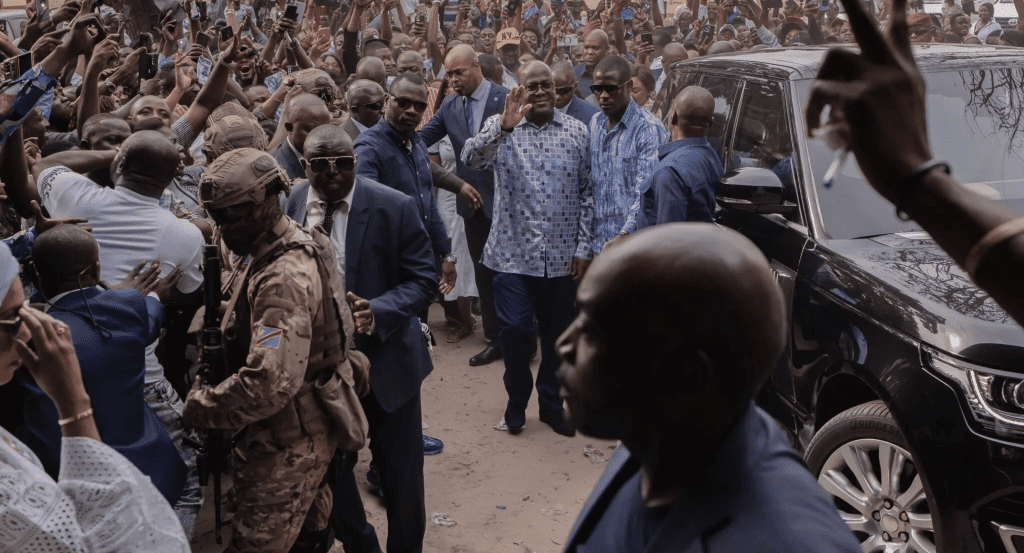The Democratic Republic of Congo (DRC) is facing a worsening crisis as armed conflicts intensify, displacing thousands and exacerbating an already dire humanitarian situation. The resurgence of the M23 rebel group, allegations of foreign interference, and the devastating impact of climate change are pushing the country into deeper turmoil.
Recent reports indicate that over 2,100 police officers and 890 Congolese soldiers have defected to M23 in Bukavu, further complicating the security landscape. The Congolese government has accused Rwanda of backing the rebels, a claim Rwanda denies. President Félix Tshisekedi has vowed to take a stronger stance against what he describes as external aggression, but the conflict continues to spread, threatening regional stability.
The ongoing violence has left civilians trapped in a cycle of fear and displacement. In Uvira, Médecins Sans Frontières (MSF) reports that thousands are struggling to access basic necessities amid clashes and extreme weather conditions. Heavy rains and landslides have worsened living conditions, making it difficult for aid organizations to reach those in need.
Humanitarian workers warn that the combination of armed conflict and climate-related disasters is creating an unprecedented crisis. Many displaced families are forced to seek shelter in overcrowded camps with limited food, water, and medical supplies. Aid efforts are further strained by insecurity, with attacks on humanitarian convoys becoming more frequent.
As the crisis unfolds, diplomatic efforts to resolve the conflict remain fragile. While regional leaders have urged dialogue, tensions between Kinshasa and Kigali show no signs of easing. The United Nations and African Union continue to call for de-escalation, but without a concrete resolution, the humanitarian situation is expected to deteriorate further.
For the people of eastern DRC, the combination of war, displacement, and climate-related challenges presents an overwhelming struggle. With no immediate solution in sight, the country remains on the brink of a deeper humanitarian disaster.




















